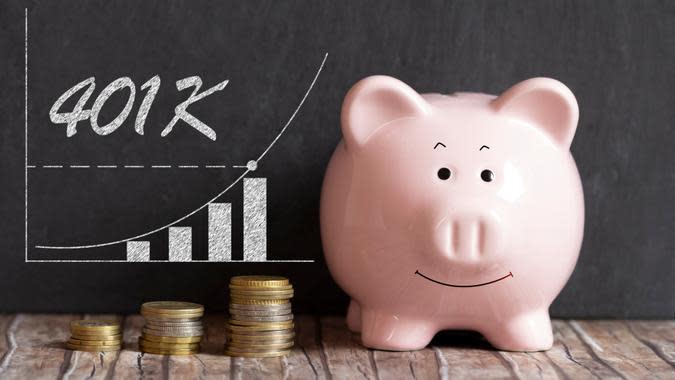4 Ways To Make Up for Lost Time If You Don’t Start Investing Until Your 30s or Later

According to an old Chinese proverb, the best time to plant a tree was 20 years ago. The second-best time is right now.
If you're in your 30s or beyond and you're just now starting to invest, you're indeed getting a late start -- but don't obsess over the years you spent not putting your money to work. Every minute spent wallowing in regret is another minute that your cash isn't compounding.
Read: 7 Florida Cities That Could Be Headed For a Housing Crisis
Learn: 3 Things You Must Do When Your Savings Reach $50,000
More: Why Buying Property in These Vacation Destinations Could Be a Great Investment
Time is every investor's best weapon, and you're running out. You can't afford to squander any more hours, but you can't afford to make any mistakes, either.
The good news is that a late start is infinitely better than never starting at all. Don't worry -- you still have time to pull it off. Here's what you need to know.

If You Haven't Been Following a Budget, Now's the Time To Start
Investing is all about growing your money, but you can't grow it if you don't keep track of it. If you haven't been investing, chances are good that you haven't been living according to a spending plan, either.
Break that habit first.
"You can think of a spending plan, or budget, as a monthly accounting of your resources and commitments," said Jake Cowans, founder and CCO of CompanyScouts. "As a result, you can make adjustments to your spending habits after seeing how much is being allocated to necessities vs. extras."
Whether you're analog or high-tech, there's no one right way to budget -- and no excuse not to.
"Budgeting tools include apps, spreadsheets, and even cash envelopes," Cowans said. "Your budget should take into consideration both recurring and irregular costs. Planning ahead for even a few of the biggest one-time costs throughout the year -- such as property taxes, car registration, tuition, back-to-school buying, etc. -- may make a huge difference in how well and how confidently you can execute your annual budget."
Live Richer Podcast: You Might Be Losing Your Credit Card Reward Points: Here's What You Should Do

Set a Goals-Based Target for the Future
Kenny Kline, president and financial lead of BarBend, holds a master's degree in mathematical finance and an MBA from Columbia Business School, and he's worked for McKinsey & Co. and Bank of America.
He believes that by identifying a target date and a target dollar amount, you'll answer a lot of the unknowns that have probably kept you from investing until now.
"Establishing a goal for your retirement savings can help you determine how much you will need to invest," Kline said. "If you aim to retire at age 67, a good rule of thumb is to have 10 times your income saved. According to this formula, if you currently earn $42,000 per year, you would need to save $420,000 by age 67."
Don't obsess too much over the exact figure for now -- that will probably change as your circumstances evolve.
"Obviously, your retirement savings goal will rely on your financial condition and retirement plans," Kline said.
For now, the key is to develop a tentative long-term goal and timeline and to get in the habit of investing consistently as you work toward achieving that goal.

Don't Swing For the Fences -- Just Get on Base
Since you're making up for lost time, you might be tempted to take a big risk and go for a big jackpot -- maybe bet it all on the next hot biotech stock or trending cryptocurrency. That's a good way to lose everything and find yourself right back where you started this time next year.
Don't overestimate your abilities. Play it safe and play it smart by adopting a long-term strategy designed with risk mitigation in mind.
"The majority of successful investors begin with low-risk, diversified portfolios and learn through experience," said Abdul Saboor from The Stock Dork. "As investors gain more information over time, they are better equipped to take a more active portfolio position."
Only a financial professional can give you investment advice, but exchange-traded funds (ETFs) offer all the benefits that Saboor mentions. They're cheap, they're simple, they provide instant diversity, you can buy and sell them in shares just like stocks, and you can invest in partial shares with however much money you have.
Then, at least you'll have some money in play while you learn about other strategies that might increase your gains in the future.

If You Have the Opportunity, Play Catch-Up on Your Boss' Dime
If your employer offers a 401(k) and you're not taking advantage of it, signing up for your workplace retirement plan and contributing at least enough to get the full company match is -- without any close second -- the most important thing you can do right now.
After all, what better way to make up for years gone by than to invest with free money?
"One of the single best ways to save for retirement is to sign up for the 401k through your employer," said Charles Thomas, financial advisor and the founder of Intrepid Eagle Finance. "Make a goal to save at least enough to get any match offered. If you're consistent over time with your paycheck deduction, you can make up lots of lost time."
More From GOBankingRates
This article originally appeared on GOBankingRates.com: 4 Ways To Make Up for Lost Time If You Don’t Start Investing Until Your 30s or Later

 Yahoo Finance
Yahoo Finance 